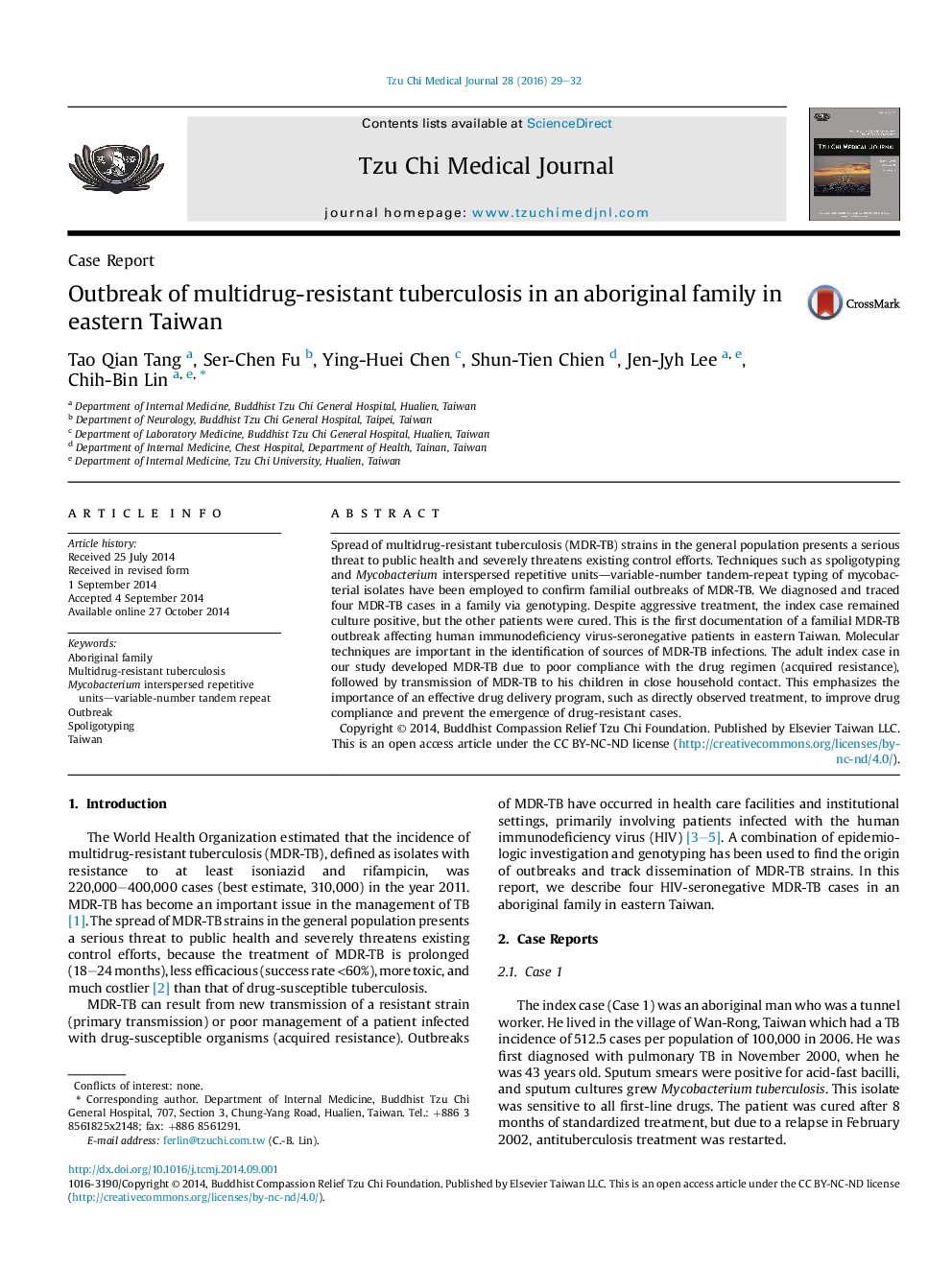| Article ID | Journal | Published Year | Pages | File Type |
|---|---|---|---|---|
| 3841795 | Tzu Chi Medical Journal | 2016 | 4 Pages |
Spread of multidrug-resistant tuberculosis (MDR-TB) strains in the general population presents a serious threat to public health and severely threatens existing control efforts. Techniques such as spoligotyping and Mycobacterium interspersed repetitive units—variable-number tandem-repeat typing of mycobacterial isolates have been employed to confirm familial outbreaks of MDR-TB. We diagnosed and traced four MDR-TB cases in a family via genotyping. Despite aggressive treatment, the index case remained culture positive, but the other patients were cured. This is the first documentation of a familial MDR-TB outbreak affecting human immunodeficiency virus-seronegative patients in eastern Taiwan. Molecular techniques are important in the identification of sources of MDR-TB infections. The adult index case in our study developed MDR-TB due to poor compliance with the drug regimen (acquired resistance), followed by transmission of MDR-TB to his children in close household contact. This emphasizes the importance of an effective drug delivery program, such as directly observed treatment, to improve drug compliance and prevent the emergence of drug-resistant cases.
